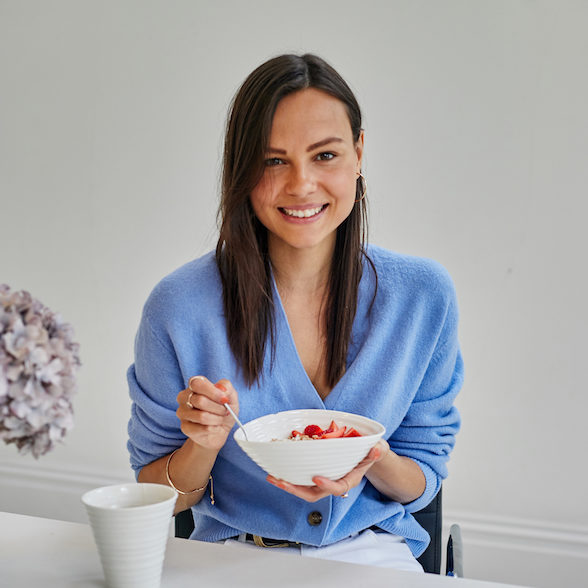Breakfast – Do’s and Don’ts
Breakfast, the most important meal of the day? There’s a lot of legend surrounding breakfast. In this article, we cut to the facts with Registered Nutritional Therapist Sophie Trotman.

Do
Avoid Placing Limits on Breakfast
In the West, there is a rhetoric that there are only certain things you can eat for breakfast. How do you feel about curry for breakfast? Or fish and vegetables? The concept of ‘breakfast foods’ was invented in the 1940s by savvy marketeers in order to sell cereal. An ideal breakfast is a balanced plate of protein, carbohydrates, fat, fibre and micronutrients (vitamins/minerals). This could be anything.
Include a Source of Protein
It is key to spread our protein intake throughout the day to maximise protein uptake. This also helps to
balance our blood sugar and increase the satiety of breakfast, hopefully leading to less mid-morning snacking. Add a scoop of high-quality protein powder, nuts, almond butter, ground flaxseed or full fat Greek yoghurt to oats. Add eggs or nut butter to toast.
Steer Clear of Juice
Most juice is made of fruit. However, as it’s been pulverised and the fibre removed, the sugar is ‘free’ and therefore the same as added sugar. When you eat a piece of fruit, it contains fibre which slows down the release of sugar into the blood stream.
And there are many fruit juices on the market that contain added sugar, flavourings and preservatives. And don’t get dentists started on fruit juice…!
Be Mindful of Sugar Intake
Most breakfast cereals and breakfast bars are laden with sugar. Jams are also full of sugar. We all know why we should be avoiding sugar, but it’s particularly important to keep sugar intake low at breakfast. This is because what we eat first thing has a greater impact on our blood sugar.
Don’t
Eat the Same Breakfast Every Day
We know that a varied diet is key for hitting nutrient targets and optimising gut health, yet in clinic I often see clients eating the same thing for breakfast every day. Get creative and mix it up!
Eat Breakfast in Front of a Screen
It is very tempting to eat your breakfast by your laptop, responding to some emails in between mouthfuls. However, we should avoid this as it inhibits the Cephalic Phase of digestion, where we look at, smell and acknowledge our food and digestive enzymes are secreted. Take some time away from screens and engage with mindful eating to improve digestion.
Drink Poor Quality Plant Milks
The past ten years have seen a boom in plant milks of all sorts. Almond, oat, hazelnut…even pistachio! Whilst it is fantastic to have so many options, we should avoid products containing flavouring, gums and sunflower lecithin as they can be damaging for gut health and more.
Drink Coffee Whilst Eating Breakfast
Coffee inhibits the absorption of essential minerals such as calcium, magnesium, iron and B Vitamins. Have your morning coffee at least 45 minutes after breakfast if possible.
Sophie Trotman DipION mBANT CNHC, Registered Nutritional Therapist.
Sophie sees clients for virtual 1:1 consults and does workplace wellbeing talks
@sophietrotmannutrition
© 2020 Copyright Sophie Trotman - Professional Nutritionist London - All Rights Reserved